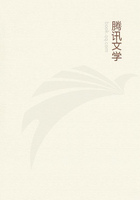
第20章 CHAPTER V(2)
"I am glad I look rather old for my years,"said he,when,after a pause,he had again flung himself down on the grass."It tells well in the tan-yard.People would be slow to trust a clerk who looked a mere boy.Still,your father trusts me.""He does,indeed.You need never have any doubt of that.It was only yesterday he said to me that now he was no longer dissatisfied with your working at all sorts of studies,in leisure hours,since it made you none the worse man of business.""No,I hope not,or I should be much ashamed.It would not be doing my duty to myself any more than to my master,if I shirked his work for my own.I am glad he does not complain now,Phineas.""On the contrary;I think he intends to give you a rise this Midsummer.But oh!"I cried,recurring to a thought which would often come when I looked at the lad,though he always combated it so strongly,that I often owned my prejudices were unjust:"how I wish you were something better than a clerk in a tan-yard.I have a plan,John."But what that plan was,was fated to remain unrevealed.Jael came to us in the garden,looking very serious.She had been summoned,Iknew,to a long conference with her master the day before--the subject of which she would not tell me,though she acknowledged it concerned myself.Ever since she had followed me about,very softly,for her,and called me more than once,as when I was a child,"my dear."She now came with half-dolorous,half-angry looks,to summon me to an interview with my father and Doctor Jessop.
I caught her parting mutterings,as she marched behind me:"Kill or cure,indeed,"--"No more fit than a baby,"--"Abel Fletcher be clean mad,"--"Hope Thomas Jessop will speak out plain,and tell him so,"and the like.From these,and from her strange fit of tenderness,Iguessed what was looming in the distance--a future which my father constantly held in terrorem over me,though successive illness had kept it in abeyance.Alas!I knew that my poor father's hopes and plans were vain!I went into his presence with a heavy heart.
There is no need to detail that interview.Enough,that after it he set aside for ever his last lingering hope of having a son able to assist,and finally succeed him in his business,and that I set aside every dream of growing up to be a help and comfort to my father.It cost something on both our parts;but after that day's discussion we tacitly covered over the pain,and referred to it no more.
I came back into the garden,and told John Halifax all.He listened with his hand on my shoulder,and his grave,sweet look--dearer sympathy than any words!Though he added thereto a few,in his own wise way;then he and I,also,drew the curtain over an inevitable grief,and laid it in the peaceful chamber of silence.
When my father,Dr.Jessop,John Halifax,and I,met at dinner,the subject had passed into seeming oblivion,and was never afterwards revived.
But dinner being over,and the chatty little doctor gone,while Abel Fletcher sat mutely smoking his pipe,and we two at the window maintained that respectful and decorous silence which in my young days was rigidly exacted by elders and superiors,I noticed my father's eyes frequently resting,with keen observance,upon John Halifax.Could it be that there had recurred to him a hint of mine,given faintly that morning,as faintly as if it had only just entered my mind,instead of having for months continually dwelt there,until a fitting moment should arrive?--Could it be that this hint,which he had indignantly scouted at the time,was germinating in his acute brain,and might bear fruit in future days?I hoped so--I earnestly prayed so.And to that end I took no notice,but let it silently grow.
The June evening came and went.The service-bell rang out and ceased.First,deep shadows,and then a bright star,appeared over the Abbey-tower.We watched it from the garden,where,Sunday after Sunday,in fine weather,we used to lounge,and talk over all manner of things in heaven and in earth,chiefly ending with the former,as on Sunday nights,with stars over our head,was natural and fit we should do.
"Phineas,"said John,sitting on the grass with his hands upon his knees,and the one star,I think it was Jupiter,shining down into his eyes,deepening them into that peculiar look,worth any so-called "handsome eyes;"--"Phineas,I wonder how soon we shall have to rise up from this quiet,easy life,and fight our battles in the world?
Also,I wonder if we are ready for it?"
"I think you are."
"I don't know.I'm not clear how far I could resist doing anything wrong,if it were pleasant.So many wrong things are pleasant--just now,instead of rising to-morrow,and going into the little dark counting-house,and scratching paper from eight till six,shouldn't Ilike to break away!--dash out into the world,take to all sorts of wild freaks,do all sorts of grand things,and perhaps never come back to the tanning any more.""Never any more?"
"No!no!I spoke hastily.I did not mean I ever should do such a wrong thing;but merely that I sometimes feel the wish to do it.Ican't help it;it's my Apollyon that I have to fight with--everybody keeps a private Apollyon,I fancy.Now,Phineas,be content;Apollyon is beaten down."
He rose up,but I thought that,in the red glow of the twilight,he looked rather pale.He stretched his hand to help me up from the grass.We went into the house together,silently.
After supper,when the chimes struck half-past nine,John prepared to leave as usual.He went to bid good-night to my father,who was sitting meditatively over the fireless hearth-place,sometimes poking the great bow-pot of fennel and asparagus,as in winter he did the coals:an instance of obliviousness,which,in my sensible and acute father,argued very deep cogitation on some subject or other.
"Good-night,"said John,twice over,before his master heard him.